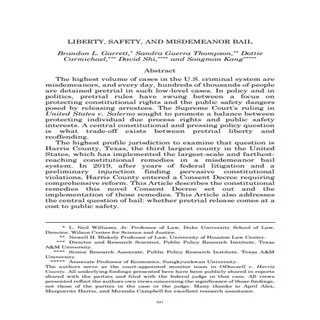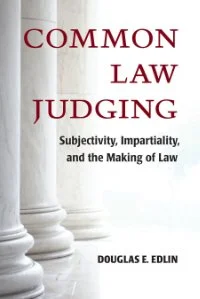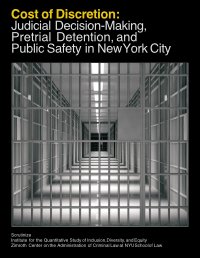By Emily Ryo, Ian Peacock, Weston Ley, and Christopher Levesque
Whether and to what extent racial minorities experience harsher treatment or face worse outcomes in court are questions of fundamental importance for any justice system. Questions of racial inequality are especially salient in the context of removal proceedings that are triggered by immigrants’ criminal history. Many individuals in crime-based removal proceedings are immigrants of color who face a host of legal disadvantages that are tantamount to double penalties for the same crime for which they have already been punished through the criminal justice system. This Article offers, for the first time, systematic empirical analyses of crime-based removal proceedings decided between 1998 and 2023 in U.S. immigration courts. Our analyses produced three key findings. First, our results show that double penalties for immigrants in crime-based removal proceedings are large and growing. Second, there are significant racial disparities in the rate at which immigrants are released from detention and the rate at which they are ordered removed from the United States. Specifically, Hispanic immigrants with drug-related charges and Black immigrants with domestic violence or firearms charges face significantly worse outcomes than their counterparts. Third, non-white immigrants fare better when their presiding judges are of the same, rather than different, race. For white immigrants, however, they generally fare better than non-white immigrants regardless of the presiding judges’ race, and this white favoritism is more pronounced among some non-white judges than white judges. These findings have important implications for scholarship on the continuing salience of race and ethnicity in criminal and civil proceedings despite facially race-neutral laws, as well as policymaking aimed at advancing racial equality in our justice system.
Minnesota Law Review, v. 109, 2025









